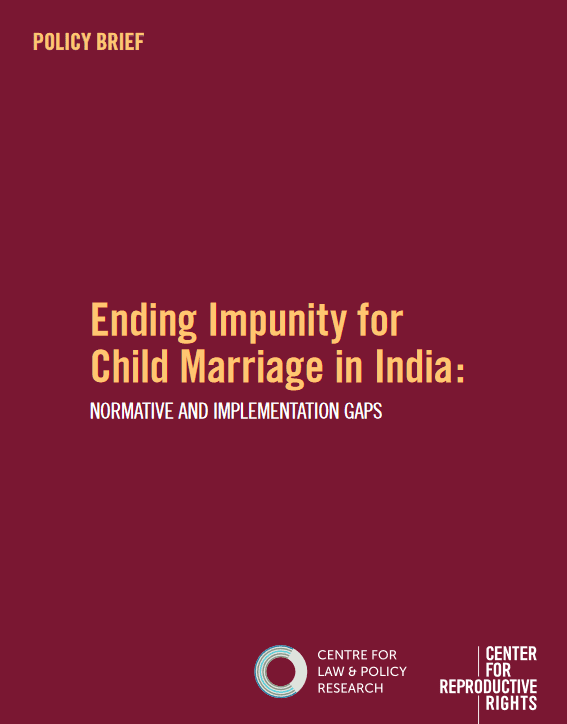Government of Nepal Hosts Convening on Ending Child Marriage with South Asian Governments
(PRESS RELEASE) With 130 million South Asian girls expected to be forced into early marriage by 2030, the government of Nepal is hosting a convening on using the law to end child marriage, particularly focusing on how the lack of government accountability is leading to these human rights violations against young women.
The convening today brings together officials from member states of the South Asian Association for Regional Cooperation (SAARC)—including representatives from Afghanistan, Bangladesh, Bhutan, India, Maldives, Nepal, Pakistan and Sri Lanka— members of civil society and the South Asia Initiative to End Violence against Children (SAIEVAC) which led the development of a regional action plan to end child marriage set for enforcement in 2015. The Center for Reproductive Rights and SAIEVAC are the lead organizers of this convening.
“Too many young girls in South Asia are forced into marriage and robbed of their childhood,” said Melissa Upreti, regional director for Asia at the Center for Reproductive Rights. “Governments in the region have been complicit in violating the fundamental rights of young girls by failing to effectively prohibit and punish child marriages. It’s time South Asian governments take the concrete steps necessary to eliminate child marriage in the region through law reform and enforcement.”
In 2013 the Center issued the report Child Marriage in South Asia: Stop the Impunity examining the consequences of child marriage, which subject girls to heinous abuses, including domestic violence and marital rape, placing their reproductive health and lives at serious risk. The report criticizes the failure of governments to prevent and prosecute cases of child marriage, but also acknowledges progress being made under the leadership of SAIEVAC to promote stronger legal accountability to end child marriage in the region.
The practice of child marriage violates a fundamental norm of international law that marriage should be based on the free and full consent of the parties involved. The family and societal pressure on child brides to give birth soon after marriage leads to early pregnancies that increase girls’ risk of maternal mortality—the leading cause of death among girls ages 15-19 worldwide, accounting for 70,000 deaths every year–and pregnancy complications such as fistula and uterine prolapse. In cases of child marriage, various forms of physical and sexual abuse that are otherwise recognized as crimes in national laws go unpunished leaving girls powerless and without any legal recourse.
The Center for Reproductive Rights has built a significant presence throughout Asia, with major initiatives such as the South Asia Reproductive Justice and Accountability Initiative which focuses on promoting the use of the law and legal strategies to protect and promote women’s reproductive rights in the region. The Center—which opened a regional office in Kathmandu, Nepal in 2012—has conducted legal research, built local capacity and undertaken advocacy at the UN in relation to numerous countries in the region.


